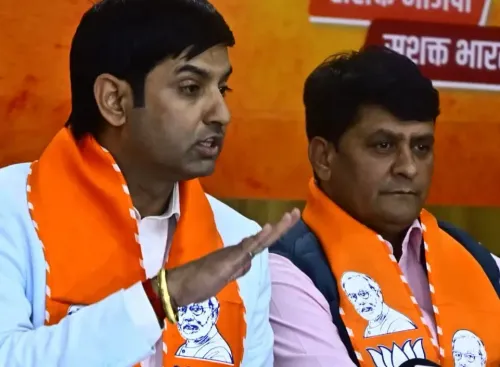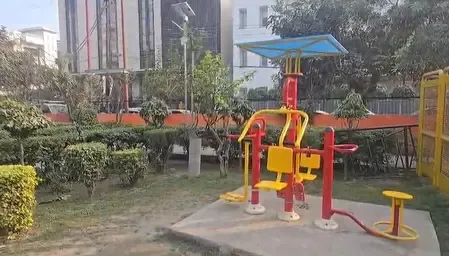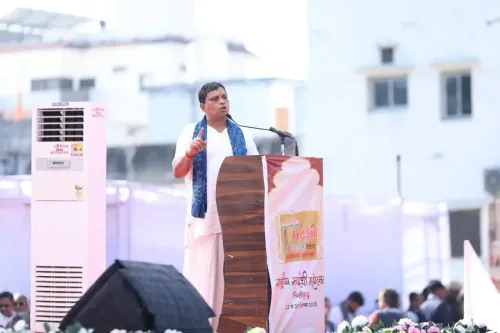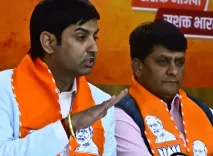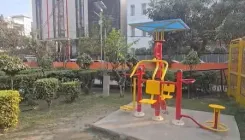Will Delhi See 4,000 Electric Buses on Its Roads This Year?
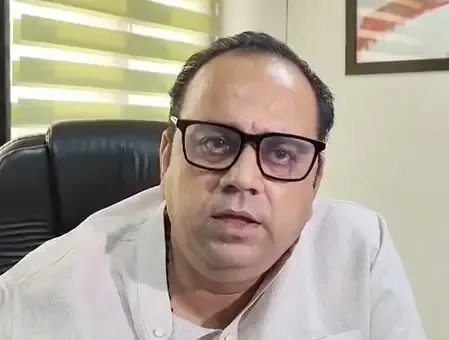
Synopsis
Key Takeaways
- Delhi plans to add over 4,000 electric buses this year.
- A new Yoga-based diabetes management initiative is forthcoming.
- The government emphasizes pollution reduction and improved public health.
- 2.31 lakh health cards have been issued under new schemes.
- The Minister criticized the previous government’s performance.
New Delhi, May 30 (NationPress) Delhi's Transport and Health Minister Pankaj Kumar Singh announced on Friday that the city is set to welcome over 4,000 electric buses by the end of this year. He also revealed plans to introduce a Yoga-based initiative aimed at managing diabetes in the near future.
“Addressing pollution is a priority for our administration, and various departments are collaborating to combat this issue. In the transport sector, we are committed to replacing outdated CNG buses with more environmentally friendly electric vehicles,” he stated to IANS, marking 100 days of his tenure.
The Minister expressed that the deployment of electric buses is expected to significantly alleviate pollution levels and improve connectivity, especially in heavily congested areas.
He also pointed out several health initiatives launched during the first 100 days, including the Pradhan Mantri Vaya Vandana Yojana (PMVVY) for senior citizens, Ayushman Mandir, and the Ayushman Card, emphasizing efforts to curb irregularities in drug distribution.
“The Ayushman scheme, which should have benefitted people earlier, was hindered by the previous government led by Arvind Kejriwal. We have successfully distributed cards and enrolled beneficiaries through door-to-door campaigns, resulting in approximately 2.31 lakh health cards issued under these two initiatives,” he added.
The Minister criticized the previous Aam Aadmi Party (AAP) administration for prioritizing publicity over public service, stating that “we found no positive aspects in the past government's performance. There are ongoing scandals related to essential services including drinking water, road maintenance, pollution management, Yamuna cleaning, transportation, and hospital drug supply.” He noted that only five medical superintendents were overseeing all major hospitals in the city under the previous regime.
In his critique of the AAP government, he remarked, “They neglected their duties and engaged in blame-shifting. Our focus is on fulfilling the commitments we made.”
On diabetes, a prevalent health issue, he stated, “We are crafting a new program called ‘Diabetes-plus with Yoga’. We will soon provide more details to the public,” adding that the health department is dedicated to ensuring the effective operation of free dialysis centers.


